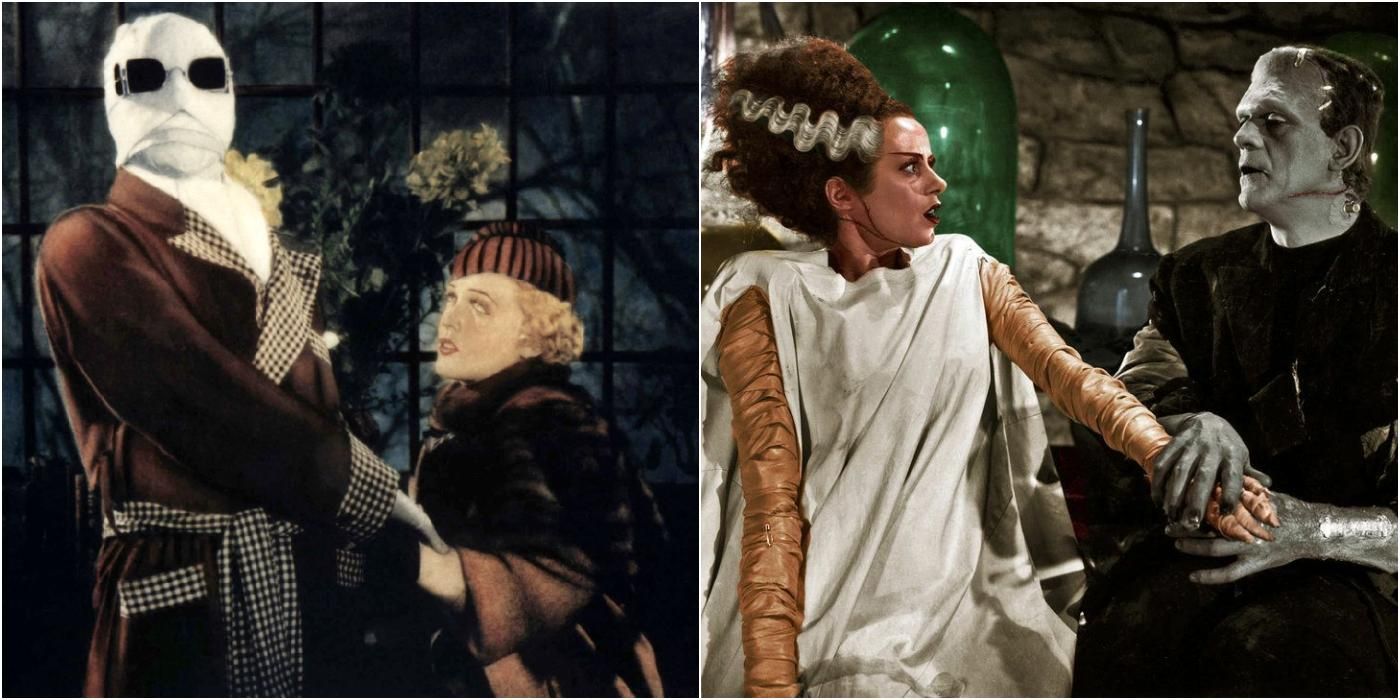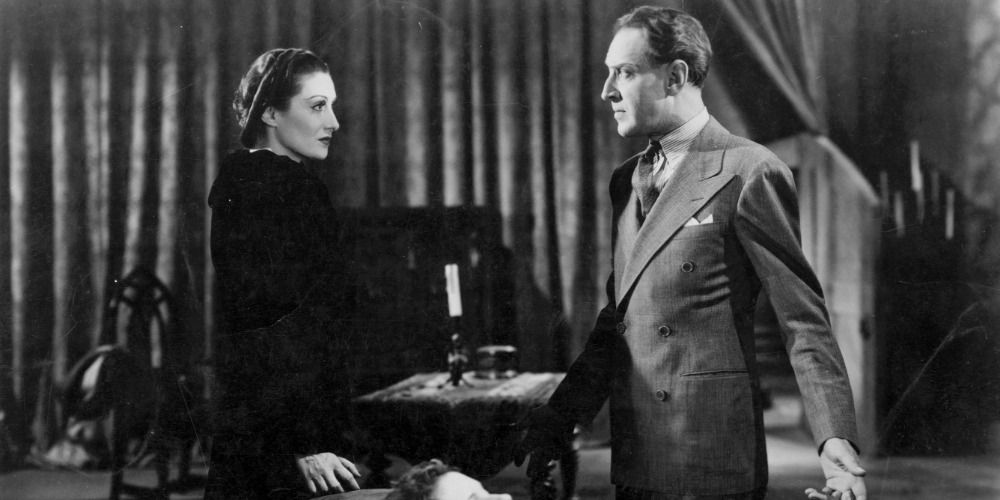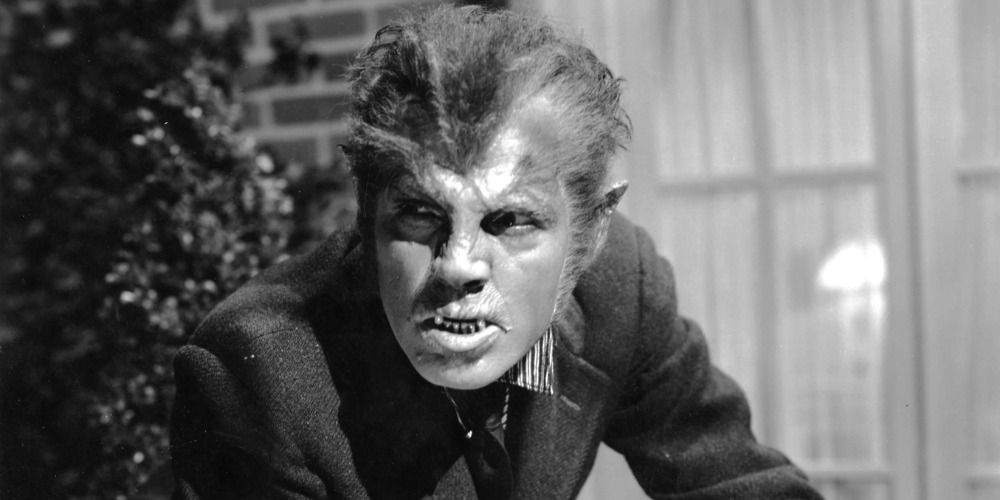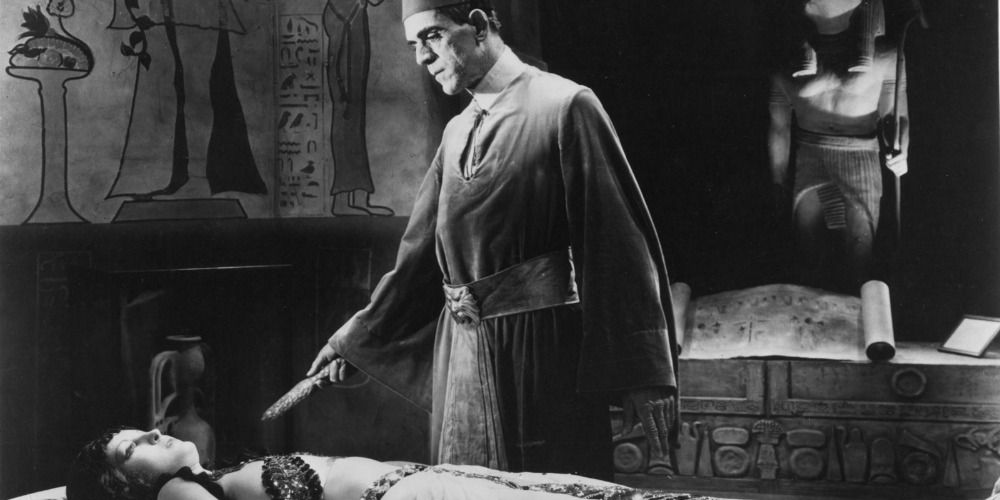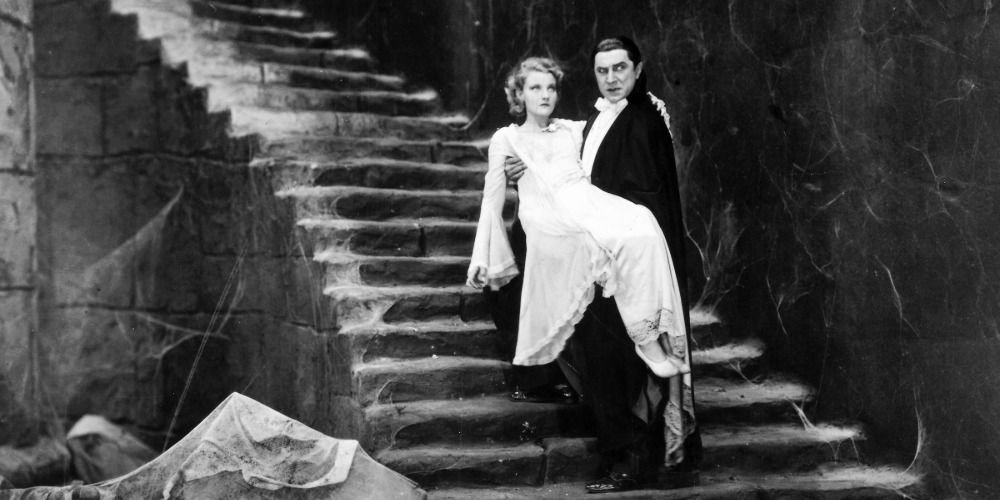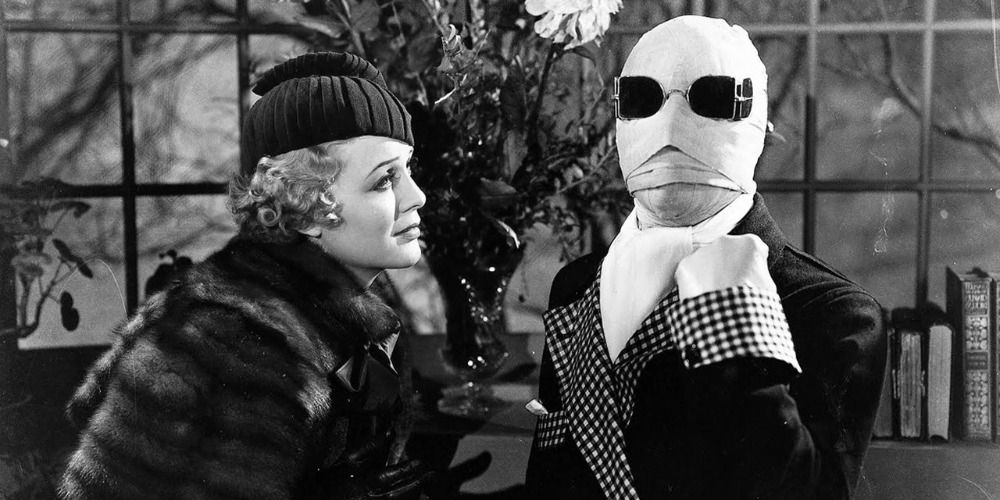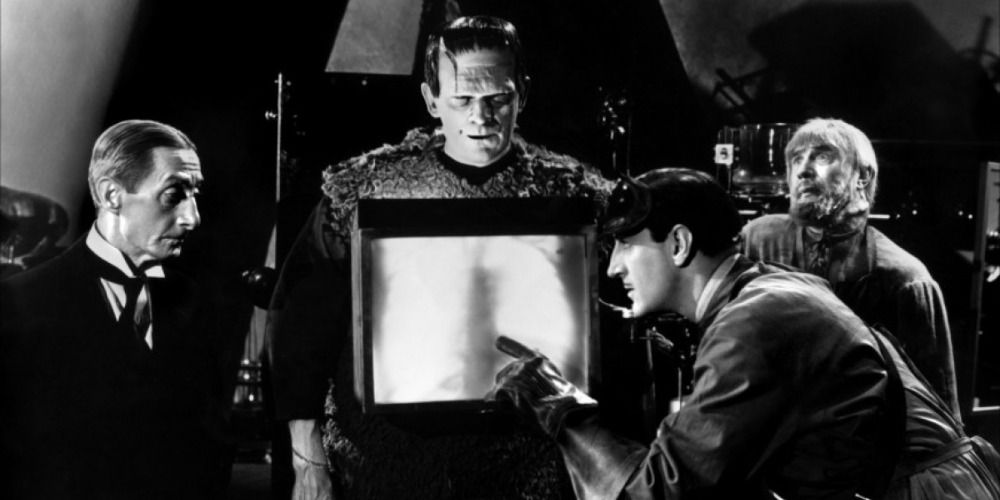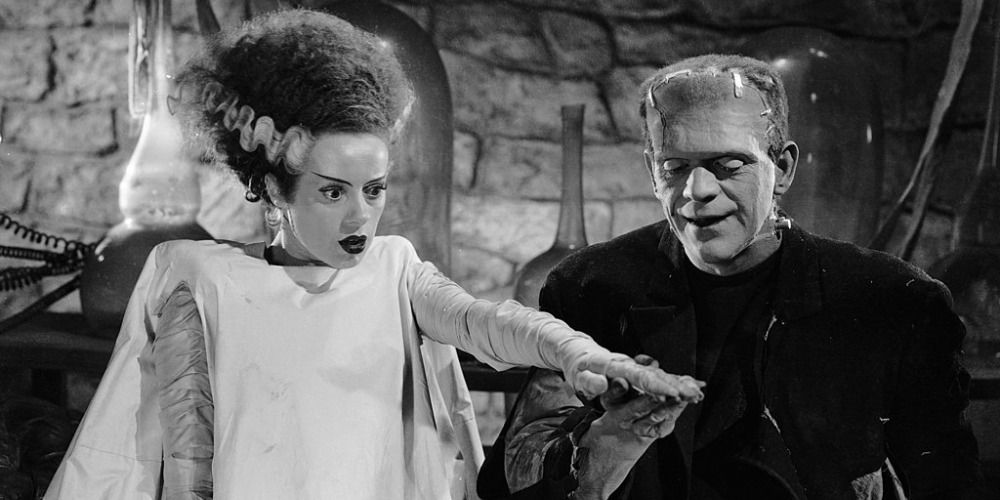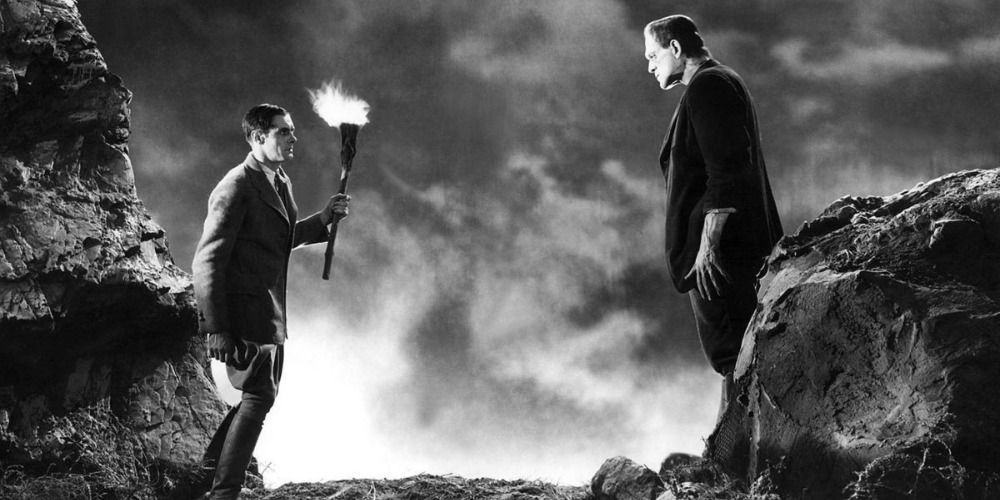Before the MCU or the DCEU, the very first shared cinematic universe was the Universal Classic Monsters. Starting with The Phantom of the Opera in 1925 and ending with The Creature Walks Among Us in 1956, these films gave rise to beloved creatures like Dracula, the Frankenstein monster, and the Invisible Man.
In the past decade, Universal's revival of these monsters has generated new interest in the earlier films. From Leigh Whannell's The Invisible Man to Karyn Kusama's forthcoming Dracula, these characters are being updated for modern audiences. Many of the most iconic Universal Monsters came to life in the 1930s, and their stories reached new heights in the 1940s with dozens of crossover films.
Dracula's Daughter (1936) - 55%
Marketed as a sequel to 1931's Dracula, Dracula's Daughter stars Gloria Holden in the title role. Holden plays Countess Marya Zaleska, a vampire who hopes that she can live a normal life by destroying her late father's body. When this doesn't work, the Countess seeks the help of a psychiatrist.
As her cravings increase, Dracula's heir lures the psychiatrist's wife to Transylvania, giving the movie a lesbian subtext. The only actor from the original film to return for Dracula's Daughter is Edward Van Sloan, who plays Professor Von Helsing (a slight alternation from his previous role as Van Helsing). Despite Holden's alluring performance, the trudging plot and overabundance of dialogue keep this feature from being as entertaining as it could be.
Werewolf Of London (1935) - 77%
The first Hollywood mainstream film to star a werewolf, Werewolf of London sees Henry Hull playing a hairy, hungry beast six years before Lon Chaney Jr. shined in The Wolf Man, another Universal film. The tone and special effects make-up in both movies are similar. In the 1935 film, Hull plays Wilfred Glendon, a botanist attacked by a werewolf during a trip to Tibet.
Glendon returns to London, where he fends off his wolfen cravings with the help of the mariphasa plant. When Glendon runs out of blossoms, all bets are off in this Stuart Walker-directed movie, which co-stars Warner Oland as Dr. Yogami, a fellow botanist.
The Mummy (1932) - 88%
German cinematographer Karl Freund's second feature as a director stars English actor Boris Karloff as an ancient Egyptian mummy named Imhotep who is accidentally brought back to life by a team of archaeologists. One of many Universal films starring Karloff, The Mummy established many of the tropes that would come in later films centered around Egyptian mummies, including the problematic othering of Eastern culture.
Imhotep searches for his long-lost love in the film, who he believes has been reincarnated into a woman living in the present. The Mummy was a major success upon release, leading to numerous sequels, reboots, and remakes.
Dracula (1931) - 92%
Tod Browning's English-language Dracula was released two months before George Melford's Spanish-language version. Both films led to fame for Bela Lugosi, the Hungarian-American actor who made a name for himself in horror movies. Based on Bram Stoker's 1897 novel of the same name, Dracula follows Lugosi's eponymous Count as he migrates from his castle in Transylvania and makes his way to Victorian England.
Lugosi's Dracula remains a cultural icon, a cloaked bloodsucker with catchphrases like, "Listen to them, the children of the night." Lugosi plays up his character's seductive qualities, which take center stage amidst creepy backgrounds and eerie atmospherics.
The Invisible Man (1933) - 94%
James Whale is responsible for this seminal adaptation of the H.G. Wells novel The Invisible Man, which tells the story of a scientist who makes himself invisible after using his own body as a guinea pig for an experiment. Claude Rains plays the title character, an ambitious chemist named Dr. Jack Griffin who also undergoes severe psychological changes as a result of his newfound invisibility. Bandaged and deranged, Rains seeks refuge in a local hotel while pulling his colleague's daughter Flora into his mania.
The Invisible Man proved itself a box office success from the beginning, inspiring multiple spin-offs and remakes, including the hit 2020 film starring Elisabeth Moss. The original's stunning visual effects were ahead of their time and haven't received the level of notice they deserve.
Son Of Frankenstein (1939) - 95%
This star-studded installment in the Frankenstein saga stars Basil Rathbone as Baron Wolf von Frankenstein, the son of Dr. Henry Frankenstein — the man responsible for bringing the titular monster to life in the 1931 Frankenstein. Wolf returns with his wife and young son to his family's castle, where he finds remnants of his late father's work, including the body of the monster.
With the help of a local, troubled blacksmith named Ygor, played by Bela Lugosi, Wolf decides to bring the Frankenstein monster back to life. Boris Karloff returns as the monster, who abides by Ygor's murderous commands. Many critics consider Son of Frankenstein the last truly good film of its kind.
Bride Of Frankenstein (1935) - 98%
James Whale returned as director for this sequel to his 1931 Frankenstein film. Bride of Frankenstein is seen as an impeccable sequel, one that matches the brilliance of its predecessor while maintaining its own unique plot. The film's frame narrative takes viewers back to the stormy night in Switzerland when author Mary Shelley first conceived of the book that would become Frankenstein.
From there, the film shifts into its present action, where the lonely monster (Boris Karloff again) and his maker, Henry Frankenstein, have both survived the first film's ordeal. The monster forces Henry to create a companion for him, an undead woman played by Elsa Lanchester. Unfortunately, the monster's bride rejects him as soon as she takes her first breath.
Frankenstein (1931) - 100%
Producer Carl Laemmle Jr. is responsible for Universal's turn toward horror movies, and the success of Dracula inspired Laemmle to bring the story of the Frankenstein monster to the big screen. With its stunning cinematography, believable character development, and moody aesthetics, no Frankenstein adaptation approaches the beauty, horror, and style of James Whale's original film.
Boris Karloff's career-defining portrayal of Henry Frankenstein's cursed monster is equal parts heartbreaking and terrifying. Without Jack Pierce's influential makeup choices, the character's look wouldn't be as emblematic as it to this day.

